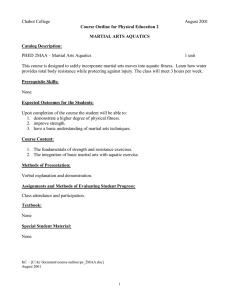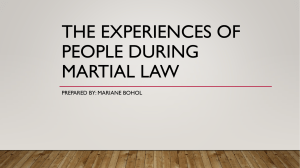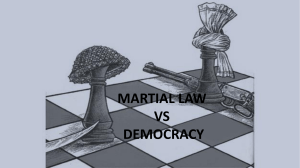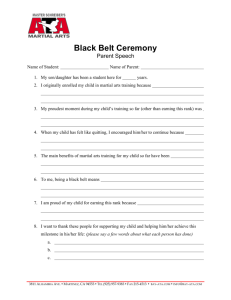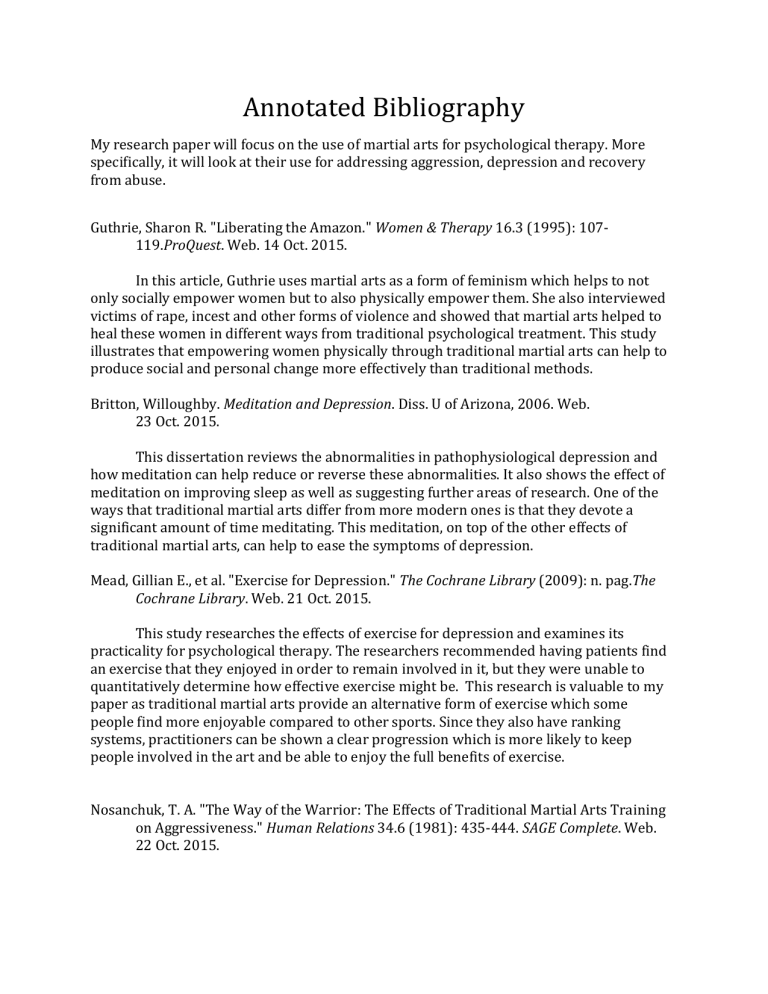
Annotated Bibliography My research paper will focus on the use of martial arts for psychological therapy. More specifically, it will look at their use for addressing aggression, depression and recovery from abuse. Guthrie, Sharon R. "Liberating the Amazon." Women & Therapy 16.3 (1995): 107119.ProQuest. Web. 14 Oct. 2015. In this article, Guthrie uses martial arts as a form of feminism which helps to not only socially empower women but to also physically empower them. She also interviewed victims of rape, incest and other forms of violence and showed that martial arts helped to heal these women in different ways from traditional psychological treatment. This study illustrates that empowering women physically through traditional martial arts can help to produce social and personal change more effectively than traditional methods. Britton, Willoughby. Meditation and Depression. Diss. U of Arizona, 2006. Web. 23 Oct. 2015. This dissertation reviews the abnormalities in pathophysiological depression and how meditation can help reduce or reverse these abnormalities. It also shows the effect of meditation on improving sleep as well as suggesting further areas of research. One of the ways that traditional martial arts differ from more modern ones is that they devote a significant amount of time meditating. This meditation, on top of the other effects of traditional martial arts, can help to ease the symptoms of depression. Mead, Gillian E., et al. "Exercise for Depression." The Cochrane Library (2009): n. pag.The Cochrane Library. Web. 21 Oct. 2015. This study researches the effects of exercise for depression and examines its practicality for psychological therapy. The researchers recommended having patients find an exercise that they enjoyed in order to remain involved in it, but they were unable to quantitatively determine how effective exercise might be. This research is valuable to my paper as traditional martial arts provide an alternative form of exercise which some people find more enjoyable compared to other sports. Since they also have ranking systems, practitioners can be shown a clear progression which is more likely to keep people involved in the art and be able to enjoy the full benefits of exercise. Nosanchuk, T. A. "The Way of the Warrior: The Effects of Traditional Martial Arts Training on Aggressiveness." Human Relations 34.6 (1981): 435-444. SAGE Complete. Web. 22 Oct. 2015. This article examines the effects of traditional martial arts on a student’s overall aggressiveness. It illustrates that longer lengths of training led to an overall decrease in aggression and promoted self-confidence, self-assertiveness, self-esteem and self-control. This article clearly indicates how martial arts can help to decrease aggression in people. It also has many other positive benefits which could help with treating depression and anxiety. Twemlow, Stuart W., and Frank C. Sacco. "The Application of Traditional Martial Arts Practice and Theory to Treatment of Violent Youths." Adolescence33.131 (1998): 505-518. Web. This article analyses a variety of case studies in order to determine the principles of a program that uses martial arts in order to rehabilitate violent youths. This research is useful as it is a clear example of the psychological benefits of martial arts and provides additional case studies for research. It is also useful as it provides an outline of a practical program for martial arts rehabilitation. Woodward, Thomas W. "A Review of the Effects of Martial Arts Practice on Health." Wisconsin Medical Journal 108.1 (2009): 40-43. Web. 8 Oct. 2015. This review provides a general overview of the health effects of traditional martial arts. It outlines both the physical and psychological effects they can have as well as the potential dangers of participating in them. This article provides a good general overview into the topic as well as illustrating other areas of research.
